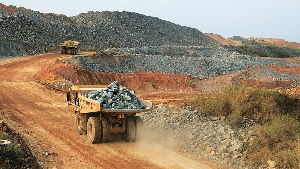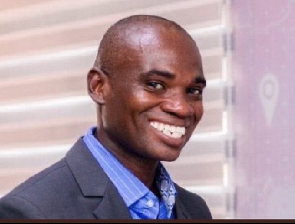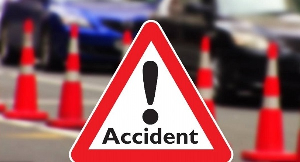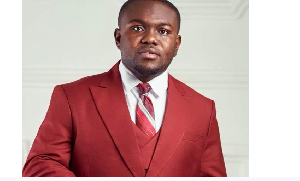A few weeks ago, Ghana observed its 64th political independence anniversary and 10 days before that, it also observed the 55th anniversary of the overthrow of Dr. Kwame Nkrumah and his Convention People’s Party (CPP) from power.
I am not aware of the New Patriotic Party’s (NPP) position on celebration of their successful “removal of Kwame Nkrumah from power on 24 February 1966”, and celebration of Ghana’s 64th independence anniversary on 6 March 1957. Indeed, on both occasions, the NPP played insurmountable roles:
a. having instigated the overthrow of Nkrumah and
b. being vehemently against Ghana’s attainment of independence as they told the British Colonial government that we the people of the Gold Coast (now Ghana) were not yet ready for independence.
They boycotted our independence celebrations and their top leaders, Mr. J.B. Danquah, Dr. K.A. Busia and Mr. S.D. Dombo stayed away from Accra Polo Grounds on 6 March 1957, to take part in the celebrations whereas foreign dignitaries, including Rev. Martin Luther King Jr, Mr. Andrew Young, Mr. George Padmore, Mr. William F. Du Bois from the United States of America, and other countries were in Ghana to join in our landmark celebrations.
What a historic moment the NPP missed out on because of hatred for Nkrumah and the Convention People’s Party (CPP).
Looking back on 6 March, 1957, the NPP must be remorseful for not taking part in our independence celebrations, bearing in mind that they never agreed for us to be granted independence in the first place.
Instead, the British Colonialists were oblivious to honouring the Bond of 1844 when they agreed with Fante Confederacy’s chiefs from the Central Region to leave the Gold Coast in 100 (one hundred) years’ time, on or by 6 March 1944. The Colonialists stayed put until Nkrumah returned to the Gold Coast in 1947, by which time, they had overstayed their visas by 3 years.
This incensed Nkrumah who was insistent on the British ending their colonial rule of our country so we could manage our own affairs. The United Gold Coast Convention (UGCC) leaders, however, thought we should give our colonial masters more time to rule us, but Nkrumah would not buy that.
This argument led to disintegration of the UGCC, and ensuing divisions resulted in the formation of other political parties, including the Convention People’s Party (CPP) in 1949.
NKRUMAH’S OVERTHROW
It must be made clear that NPP, then known as United Party, initiated the military takeover of Nkrumah’s regime. Dr. K.A. Busia, the then leader of United Party (now New Patriotic Party, NPP) went into exile in 1959.
From then on, and throughout 1960s, the opposition United Party was actively engaged in bomb-throwing and assassination attempts on the life of Kwame Nkrumah until eventually, there was the military coup d’état that would finally remove Dr. Kwame Nkrumah and his Convention People’s Party (CPP) from power on 24 February 1966.
The talk of CIA and MI5 therefore, being responsible for overthrowing Nkrumah is all palpable nonsense because we did not see forces from the CIA and MI5 on the streets of Accra, fighting alongside Ghanaian soldiers to overthrow Nkrumah and his government.
It was a group of Ghanaian soldiers, later to be known as the National Liberation Council (NLC), led by Col. Kotoka and Major Afrifa who did just that.
However, if Dr. Busia sought help and support from the CIA and the MI5 that would not be disputed. From 24-27 February 1966, there was fierce fighting at the Flagstaff House, both in the tunnel and on the ground until the raging gun fires subsided, culminating in overall deaths of hundreds of people.
I heard all the gun sounds of the gunshots because I lived literally opposite the Broadcasting house which is the backyard of the Flagstaff house. Sadly, the faithful dead who fought endlessly were Nkrumah’s security guards, made up of Ghanaians, Russians, and Chinese personnel at the Flagstaff House.
Others were lined up opposite the Flagstaff House, in front of the Organisation for African Unity (OAU) plinth and severally shot to death by the NLC soldiers, led by Col. Afrifa.
Did that act by the coup makers have a semblance on Rawlings’ Armed Forces Revolutionary Council’s (AFRC) firing squad elimination of the military generals, including the then General Akwasi Amankwah Afrifa himself in September 1979, 13 years down the line?
The answer, my friend, was blowing in the wind at the time. May the faithful dead continue to rest in peace as we still remember them.
And it came to pass that when Dr. Busia returned home from exile in March 1966, the NLC engaged him as the Chairman of the National Advisory Committee. Busia was now the top civilian adviser to the military regime of NLC and in fact the de facto President of Ghana. Fast forward to the September 1969 general elections, Dr. Busia and his party, The Progress Party (formerly United Party) won the elections as one would expect.
On 13 January 1972, Col. Acheampong and National Redemption Council (NRC) removed Busia and his government from power for poor performance.
Since the overthrow of Nkrumah 55 years ago, and about eleven governments ago, none of those governments have matched Nkrumah’s achievements. This is the greatest dilemma facing us as a nation. All that we have become accustomed to is a plethora of undelivered Manifesto promises by the 2 (two) main political parties viz. National Democratic Congress (NDC) and NPP.
Of late, we expected to have had railway train service operating from Takoradi, down south to Paga in the northern Ghana; not delivered.
One district One Factory; not completed. Missing excavators not found. The structures built by Nkrumah have largely deteriorated, we have not maintained, serviced nor improved them, whereas our counterparts in Malaysia and Singapore are surging ahead from glory into glory.
We are now battling with poor roads creating accidents killing our people, and illegal mining (galamsey) that is destroying our lands (including cocoa farms) and our water bodies must be confronted by our current administrators head-on to stop the menace.
What is stopping our government to act against the galamsey is the fact that others in high positions are involved in galamsey themselves.
I urge all right-thinking Ghanaians to admit that, had the NPP continued Nkrumah’s developmental process, maintained, and improved on the structures Nkrumah put into place Ghana would have gone far ahead compared to its current abysmal situation that is a constant reminder that that we are edging towards a failed state.
For, if after 64 years of independence we are faced with serious challenges such as unemployment, abject poverty, colonization of the people by our own Ghanaian politicians, lack of proper medical care for the citizenry, our government officials.
The ate President Atta Mills, Vice-President Dr. Bawumiah and Finance Minister Mr Ofori Atta having needed foreign further and better medical attention not present in Gnana, to mention a few of our challenges, including galamsey that is destroying our farmlands and water bodies then we are heading towards unknown territories to be precise.
Indeed, there are more questions than answers.
Since the overthrow of Kwame Nkrumah, there has not been any credible replacement for him to date because Dr Busia, who was expected to replace Nkrumah turned out to be too weak to step into Nkrumah’s shoes and failed big time to make sense out of the foundations his predecessor Nkrumah put into place.
To wit, and I shall use an adage in the Akan language, thus, “Odupon Etutu Ma Edufuakye Abeye Ogya”.
This translates as, “an oak tree has been uprooted, only to be replaced with a pawpaw tree”. The oak tree is likened to Dr. Kwame Nkrumah and the pawpaw tree also likened to Dr. K A. Busia.
Ghana was developing at a reasonably fast pace, but Nkrumah’s overthrow brought the developments to a standstill. From the following list of Nkrumah’s achievements within 9 years of independence, Ghana would have achieved remarkable economic growth but for political expediency of opposition NPP.
The following are snippets of Nkrumah’s strategy intended to achieve industrial development in Ghana:
EDUCATION SECTOR
Secondary Schools (now Senior High Schools)
Under the Ghana Education Trust policy, Dr. Kwame Nkrumah built several Secondary Schools including:
· Apam Secondary School
· Dormaa Secondary School
· Ghana National College
· Half Assini Secondary School
· Labone Secondary School
· Mfantsiman Secondary School
· Nsien Secondary School-Axim
· Oda Secondary School
· Ofori Panyin Secondary School
· Swedru Secondary School
· Tarkwa Secondary School
· Techiman Secondary School
· Tema Secondary School
· Winneba Secondary School
COLLEGES OF EDUCATION
· Atebubu Training College
· Berekum Training College
· Enchi Training College
· Fosu Training College
· Kwadaso College of Education and more!
UNIVERSITIES AND TECHNICAL INSTITUTES
· Accra Polytechnic (now Accra Technical University)
· Ajumako School of Languages (now under UEW)
· Institute of African Studies
· Kumasi Technical Institute (now University)
· Kwame Nkrumah Institute of Economics and Political Science (now south campus of UEW)
· Kwame Nkrumah University of Science and Technology (KNUST)
· University of Cape Coast (UCC)
· University of Ghana (then University College of Gold Coast affiliated to university of London); Nkrumah upgraded this into a full-fledged university to award its own degrees and became their first chancellor, among others.
OTHER EDUCATION POLICIES
· Free education for primary and middle schools (JHS) to ensure that every child of school age had education in Ghana.
HEALTH SECTOR
· Built several hospitals and Poly Clinics.
· Upgraded Kumasi Central Hospital to Okomfo Anokye Teaching Hospital
· Established GIHOC pharmaceuticals
· Established the Ghana Medical School
· Free Medical Care for all citizens
· Upgraded Korle Bu Hospital into a Teaching Hospital and expanded its capacity by constructing the Medical, Maternity, Surgical and Child Health blocks
FACTORIES AND INDUSTRIES
· Aboso Glass Factory
· Akosombo Dam
· Akosombo Textiles Factory
· Asutuare Sugar Factory
· Atomic Nuclear Energy (abandoned after the coup d’état)
· Bolgatanga Meat Processing Factory
· Bolgatanga Rice Mill Factory
· BonsaTyre Factory
· GIHOC Fibre Products Company
· Kade Match Factory
· Komenda Sugar Factory
· Kumasi Jute Factory
· Kumasi Shoe Factory
· Nsawam Cannery, Brick and Tile Factory
· Pwalugu Tomato Factory
· Saltpond Ceramics Factory
· Tarkwa Gold Refinery (95% complete now a Students Hostel)
· Wenchi Tomato Factory
· Zuarungu Meat Factory
STATE ENTERPRISES
· Agricultural Development Bank
· Bank of Ghana
· Cocoa Marketing Board
· Ghana Airways Corporation
· Ghana Black Star Line with
· Introduced Ghana Commercial Bank
· Ghana Film Industries
· Ghana National Trading Corporation
· Ghana Oil Company (GOIL)
· Ghana Ports and Harbours Authority
· National Investment Bank (NIB)
· Introduced Social Security and National Insurance Trust (SSNIT)
· State Insurance Company (SIC)
· Tema Oil Refinery
· Tema Steel Works
· The National Management and Productivity Institute
· VALCO, etc
STATE HOUSING AND HOTELS
· In Accra (Labone Estate, Kanda Estates, Osu Ringway Estates, Airport Residential Area)
· In Kumasi (Patasi Estate, Kwadaso Estate, Buokrom Estates, North and South Suntreso)
· State Hotels (Star, Meridian, Ambassador, Continental now Golden Tulip Accra, Atlantic, City Hotel Catering Rest Houses Now Golden Tulip Kumasi), Peduase Lodge
· Tema Township (Communities)
Others
· Accra -Tema Motorway
· Adomi Bridge
· Akosombo Dam
· Atomic Reactor Station
· Ghana Broadcasting Corporation
· Ghana Film Corporation
· Ghana Museums
· Ghana News Agency
· Restructured the British Military base into Accra (now Kotoka) International Airport.
· State Farms and Institutes
· Tema Harbour
Conclusion
As soon as Nkrumah was overthrown, most of these organisations and projects were discontinued or abandoned and left to rot:
Aboso Glass Factory
Black Star Line (shipping)
Ghana Airways
Kade Match Factory
Tarkwa Gold Refinery
Tema Meridien Hotel and others
Had ensuing governments maintained and improved the factories and production plants, our story would have been good to write home about. We would have achieved good economic growth leading to near full employment, better quality of life, prosperity, and reaped many benefits.
Ghana’s wealth would have been spread evenly nationwide instead of being left in the hands of a chosen few. Our country would have been the first developing country to introduce a Welfare State; a vision earmarked by Kwame Nkrumah, hence why he introduced Social Security Contributions in 1965 as a precursor.
Having severally called for Nkrumahists to get back together as a full force to continue Osagyefo Dr. Kwame Nkrumah’s work, I hope that your hearts are touched enough for us to re-unite and take on our arch-rivals, the United Party, which is now the New Patriotic Party.
They removed Nkrumah and for 55 years they have not progressed. Nkrumah would have developed the whole country by now. As a selfless person, Nkrumah – who is Nzema by tribe – went to greater Accra to build Tema Township.
He could have done the township at Axim and gotten away with criticisms, but he did not. He built Tema Harbour and he could have done that at Axim. He did not build a house for himself. Flagstaff House was his home. He did not have private cars.
To cut long stories short, if your hearts are touched by this call then please speak to your leaders at People’s National Convention, Convention People’s Party, Progressive People’s Party, Ghana Union Movement, and the other smaller political parties in Ghana to agree for us to re-convene the Unification Talks. “The time is right to do the right thing”, said Rev. Dr. Martin Luther King Jr.
Forward Ever, Backward Never. The year 2024 is going to be a different kettle of fish Ghana must never be poor, but we are, because some things are not right, and we must change.
Opinions of Wednesday, 5 May 2021
Columnist: Kit Yawson



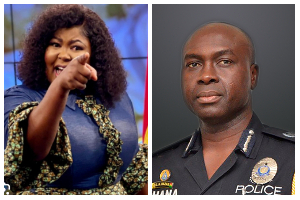

![Fatawu Issahaku [L] and Jordan Ayew Fatawu Issahaku [L] and Jordan Ayew](https://cdn.ghanaweb.com/imagelib/pics/718/71828066.295.jpg)

